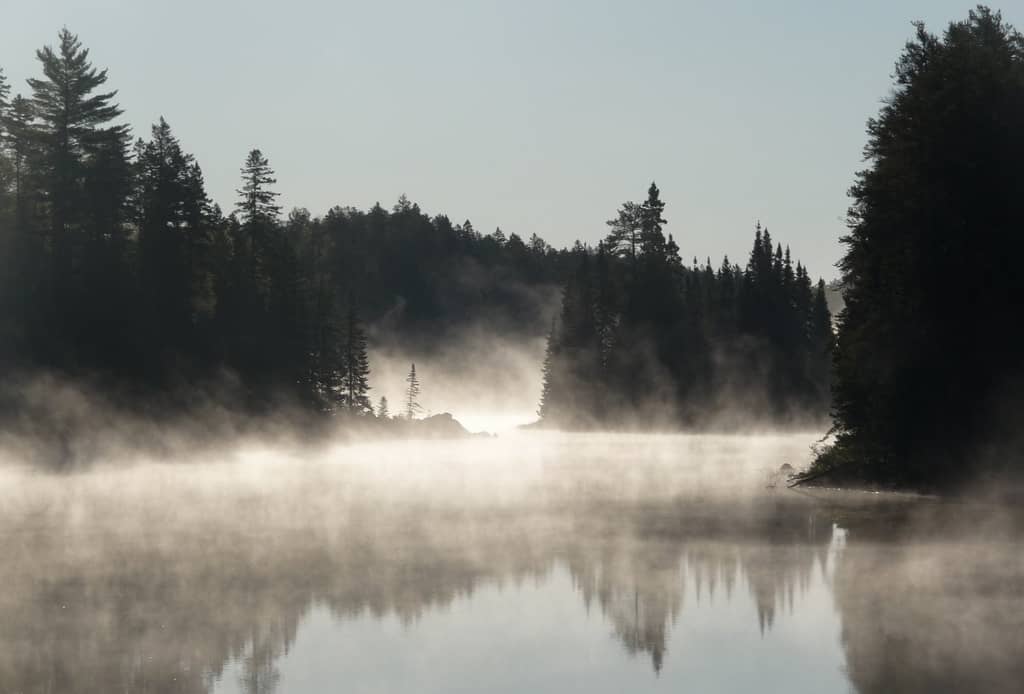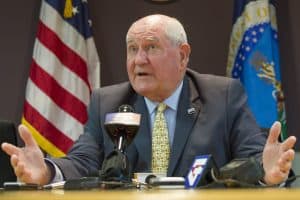

Almost a quarter-million acres of Superior National Forest lands that drain toward the Boundary Waters Canoe Area Wilderness will soon be available for mine proposals again, after being protected for the past 18 months by an Obama decision.
Sonny Perdue, Secretary of Agriculture, announced today he has withdrawn an application to remove the lands from mineral development for the next 20 years. The U.S. Department of Agriculture oversees the Forest Service, which manages the 1.1 million acre Boundary Waters wilderness and more than 2 million more acres that are part of the Superior National Forest.
Late last year, the government renewed public mineral leases in the area for mining company Twin Metals, which the Obama administration had denied.
Today’s decision halts what was supposed to be a two-year environmental review to determine if mining could be done safely in areas around the BWCAW. The USDA said that the 15 months of an abbreviated study it has already conducted were sufficient.
“It’s our duty as responsible stewards of our environment to maintain and protect our natural resources. At the same time, we must put our national forests to work for the taxpayers to support local economies and create jobs,” Perdue said in a statement. “We can do these two things at once: protect the integrity of the watershed and contribute to economic growth and stronger communities.”
The agency says mining companies will soon be able to apply for mineral leases in the wilderness watershed again. Unlike iron or taconite mining, copper-nickel mining can cause dangerous pollution that has contaminated waters around the world.
Broken promise
Boundary Waters advocates decried the decision, pointing out that Perdue had said early in the administration that the study would be allowed to continue to its conclusion.
“The Trump Administration broke its word to us, to Congress, and to the American people when it said it would finish the environmental assessment and base decisions on facts and science,” said Alex Falconer of the Campaign to Save the Boundary Waters. “It’s clear whose interest this Administration is really serving, and it’s not that of the American people.”
The Save the Boundary Waters campaign said the Forest Service received 180,000 public comments on its proposal to study the issue, and consider withdrawing the lands for a longer moratorium. The group says 98 percent of the comments supported the study, and that the science shows mining in the water-rich landscape upstream of the popular wilderness area could have devastating consequences for the environment and regional economy.
Last year, the administration downgraded the study to a less rigorous standard. But Save the Boundary Waters says even this more limited process was never released for public comment, much less finalized.
A broad coalition of businesses, in addition to environmental groups, have spoken out in favor of protecting the wilderness from the threat of mining pollution. A letter to Trump officials in June signed by businesses in the camping, fishing, hunting, and paddling industries urged them to let the study continue.
“Hunters, anglers, and recreational users support the Forest Service’s comprehensive, science-based analysis of environmental, economic, and social impacts of the proposed twenty-year withdrawal,” reads the letter from the sporting groups. “This study includes an assessment of the impacts that the inevitable consequences of copper mining, including acid mine drainage, would have on the public lands, fish, and wildlife of the Boundary Waters and downstream lands and waters.”
The Forest Service still has limited power to review lease applications and include environmental safeguards in mineral leases. Mine proposals would also have to be reviewed by the state of Minnesota.

